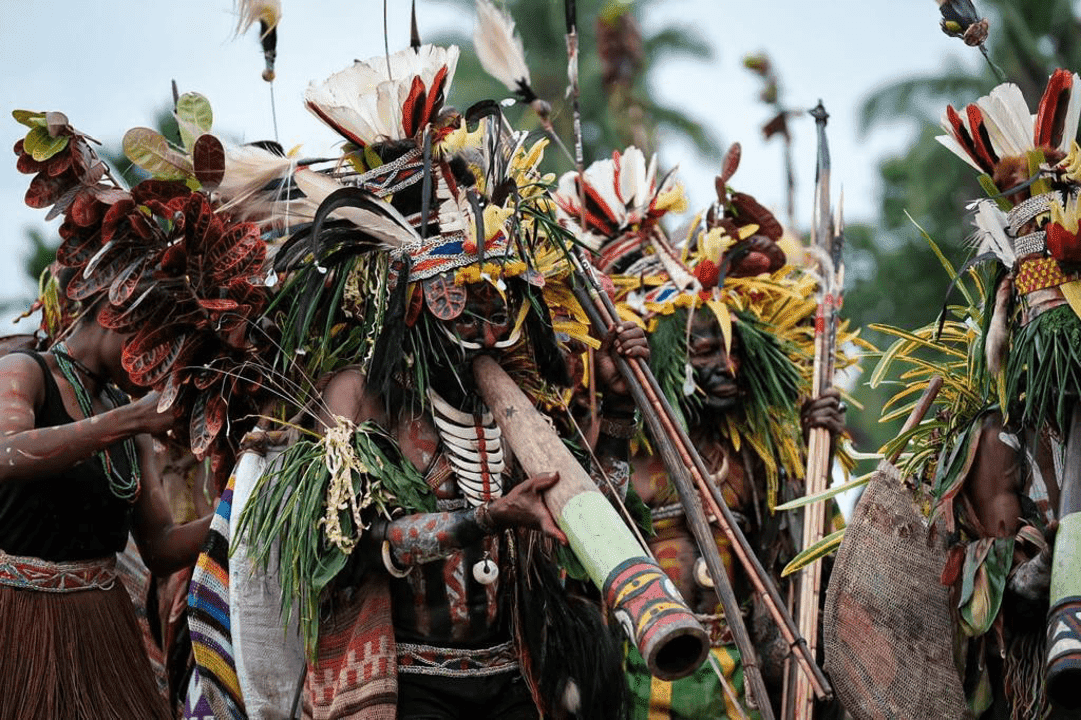Giving the Papuan people freedom to exercise special autonomy does not necessarily eliminate the responsibility of the central government. In fact, all activities in various fields are carried out fully with various benefits for the Papuan people. Including cultural issues, what local people believe about various types of tribes. There are no special rules that are mandatory for Papuans and their descendants. In fact, the existence of separate autonomy helps protect the indigenous Papuan people and guarantees their cultural freedom. The preservation of existing culture such as dance, music and other cultures is guaranteed by existing laws.
In general, cultural resources are non-physical (intangible), meaning they cannot be touched, and physical (tangible), meaning they can be touched. in 2003 In the UNESCO Convention, intangible heritage includes practices and expressions, as well as knowledge and skills, including oral and spoken traditions, performing arts, social practices, rituals and traditional crafts. Material heritage, also called archaeological heritage, is a cultural resource that has informative value about the past.
Previously, the protection of cultural freedom was regulated in Article 18B Part 2 of the Indonesian law well concerns the protection of community unity in customary law. This rule applies to all Indonesian residents. The existence of this law helps in the identification process which starts from defining customs and customary law communities, then resolving problems and disputes that arise and of course providing a sense of security for these cultural communities.
The Papua Special Autonomy Law continues to apply existing regulations. The establishment and implementation of separate independent government in Papua was initially intended to recognize and respect separate or different regional government units, while still respecting equality and diversity of social and cultural life in the country. Papuan people. The Papua Special Autonomy Law seeks to recognize, accommodate and respect the existence of Papua’s traditional legal community. Article 1 of the Special Autonomy Law clarifies the meaning of adat, indigenous communities, customary law communities, moral rights and indigenous Papuan communities. After expanding the meaning, it can be seen that this term is mentioned more than once in the law.
The Papua Special Autonomy Law emphasizes that Papuan culture is fundamental to the understanding and development of the Papuan nation. This means that all existing resources are focused on understanding Papuan identity. The aim of developing Papuan culture is; first, preserving the culture of the Papuan people, second, maintaining the strong identity of the Papuan people even though they are in an advanced and modern civilization, third, ensuring the welfare of the Papuan people, fourth, supporting education, tourism and science, fifth – increasing appreciation for the culture of the people, sixth – creativity and developing and improving the quality of cultural activities and works, seventh – protecting social culture, eighth – creating a balanced and harmonious social life. physical and mental life.
To achieve the big goal of knowing the customs of the Papua Special Autonomy Law, the prerequisites for the Papua Special Self-Government Law and the authority of PP Papua in technical regulations, both central and regional, need to be further developed. In addition, every technology policy implemented by ministries and/or institutions related to Papua must support traditional integration for the benefit of indigenous Papuan people.


